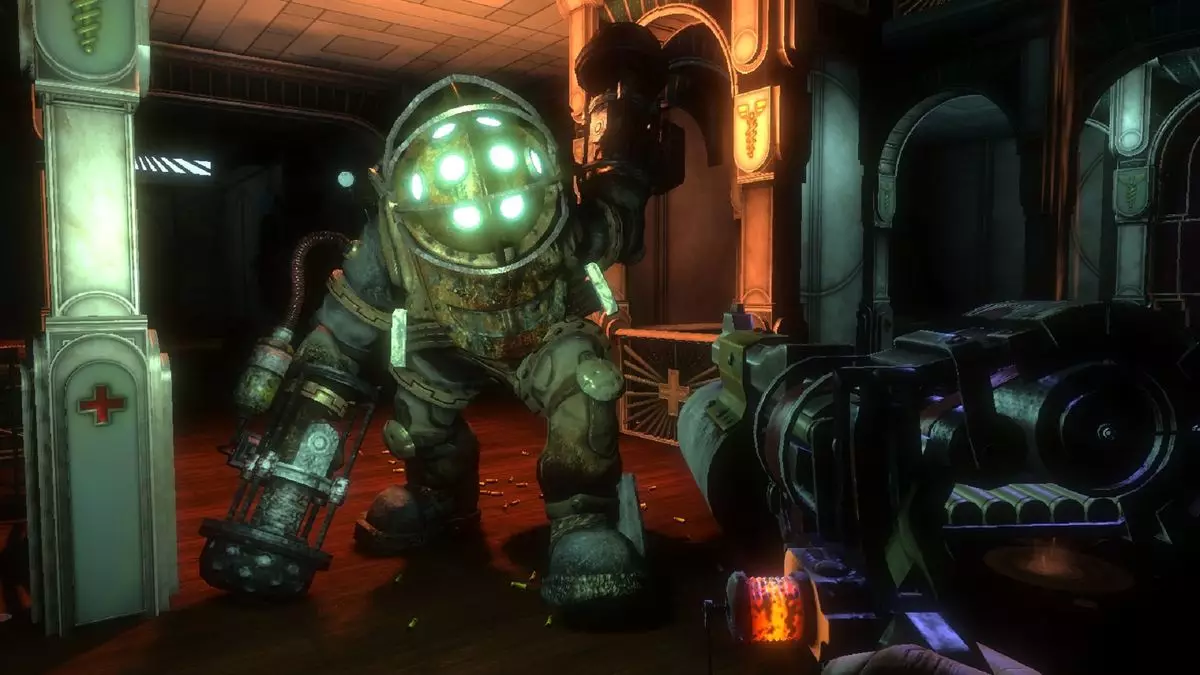Ken Levine, a notable figure in the gaming industry, has recently stirred conversation regarding the structural choices of his previous works, particularly the acclaimed BioShock series. During an interview with Gameindustry.biz, Levine described these titles as mere “corridors,” a statement likely to ruffle the feathers of long-time fans and critics alike. As he prepares to unveil his new project, Judas, which he terms a “BioShock-but-in-space,” Levine’s aspirations for narrative depth and player agency take center stage. This shift from a linear design paradigm begs the question: how will Judas redefine player engagement?
In the realm of video games, player agency—the freedom to make meaningful choices—has become a pivotal focus for developers aiming to create immersive experiences. Levine’s comments highlight a transition from the BioShock series’ linear storytelling to a more dynamic form of interaction in Judas. He asserts that his ambition is not just to craft a game, but an evolving narrative where characters react to a plethora of player decisions. This shift represents a substantial leap in game design, indicating a move away from scripted events toward a system where players’ actions lead to unique narrative outcomes.
However, this ambition comes with its own set of challenges. Levine candidly acknowledges the complexities involved in tracking player interactions and crafting character responses that feel authentic and relatable. The task of writing in-character dialogues for myriad potential actions is no small feat. The developers at Ghost Story Games—a studio founded by Levine—must juggle countless variables, essentially rethinking the architecture of game development from a linear trajectory to something far more intricate. By observing how players navigate the game, Judas could potentially offer a personalized experience each time it is played, transforming the way players perceive consequence and narrative.
The structure of previous BioShock games lent themselves to exhilarating gameplay with a strong narrative underpinning, but they often followed a formula that could feel somewhat restrictive. Players traversed beautifully crafted environments that, despite their aesthetic appeal, sometimes resembled predetermined pathways leading to structured encounters. As Levine hints at a transformation in gameplay dynamics, the anticipation surrounding Judas includes the prospect of truly divergent paths and varied storytelling, where each player’s journey is cultivated by their individual decisions.
As Judas approaches release for platforms like PC, PS5, and Xbox Series X|S, fans and industry insiders alike await to see how Levine’s ambitious vision will manifest. Breaking free from traditional design molds, the project could signal a new era in gaming, where each player’s experience is distinct, and the world reacts to them in real-time. With his commitment to fostering player agency, Levine aims not just to tell a story, but to allow players to become integral parts of the narrative itself. This evolution could redefine how we understand and interact with video games, potentially setting a new standard for narrative depth and interactivity in the medium. As the gaming community holds its breath, the question remains: will Judas achieve the groundbreaking legacy that BioShock has established? Time will tell.


Leave a Reply